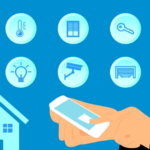In the ever-evolving landscape of property markets, the surge of next-gen real estate technology is revolutionizing how we buy, sell, and interact with properties. This transformative wave is not only reshaping traditional practices but also paving the way for a future where technology and real estate are inextricably linked.
The integration of innovative tools and platforms into the real estate sector introduces unparalleled efficiency, accessibility, and transparency, benefiting both professionals and consumers alike. Let’s delve deeper into the tech revolution that is changing the face of property dealings across the globe.
Introduction to Next-Gen Real Estate Technology
The advent of next-gen real estate technology marks a pivotal moment in the property industry. This era heralds the introduction of cutting-edge solutions designed to simplify and enhance the real estate transaction process.
From virtual property tours to blockchain-based transactions, these advancements are setting new standards of convenience and security. The goal is to create a seamless, user-friendly experience for all parties involved.
Furthermore, the application of big data and analytics enables more informed decision-making, presenting a competitive edge to those who embrace these technologies.
Virtual and Augmented Reality: A New Viewing Experience
Virtual (VR) and augmented reality (AR) technologies are redefining the way we visualize properties. Potential buyers can now tour a property remotely, experiencing the space as if they were physically present.
This not only expands the reach of property listings but also saves time and resources for both buyers and agents. Moreover, AR applications allow users to visualize renovations or furniture placements in real-time, enhancing the decision-making process.
These immersive experiences are shaping up to become standard practices in the future of real estate marketing and sales.
Blockchain: Securing Transactions
Blockchain technology is introducing a new level of transparency and efficiency to real estate transactions. By enabling smart contracts, blockchain eliminates the need for intermediaries, thereby reducing costs and potential disputes.
This technology also offers a more secure and transparent ledger system, making property histories and transactions accessible and tamper-proof. The adoption of blockchain is poised to revolutionize property sales, leasing, and management.
Artificial Intelligence and Machine Learning
Artificial intelligence (AI) and machine learning (ML) are game-changers in the property market, offering predictive insights that were previously unattainable. AI algorithms can analyze vast datasets to forecast market trends, property valuations, and investment hotspots.
Additionally, AI-driven chatbots and virtual assistants improve customer service by providing instant responses and personalized assistance. This integration of AI and ML into real estate platforms streamlines operations and enhances user engagement.
Internet of Things (IoT) and Smart Homes
The Internet of Things (IoT) is bringing about a significant shift in home ownership and management. Smart home technologies offer homeowners remote control over security, energy consumption, and maintenance, thereby increasing property value and appeal.
For real estate professionals, IoT devices provide real-time data on property conditions, aiding in maintenance management and ensuring optimal property performance.
Big Data and Analytics: Informing Decision-Making
Big data and analytics play a crucial role in the next-gen real estate technology ecosystem. These tools offer detailed insights into market trends, consumer behavior, and property performance.
Armed with this information, investors, developers, and agents can make data-driven decisions that align with market demands and future trends.
The Impact of Tech on Real Estate Professionals
The integration of technology in real estate is not only transforming how transactions are conducted but also redefining the role of industry professionals. Agents are now becoming more of tech-savvy advisors, equipped with tools that enable better service delivery.
This shift requires a new set of skills and a proactive approach to adopting and leveraging technology to stay ahead in the competitive market.
Challenges and Opportunities
Despite the promising advantages of next-gen real estate technology, its adoption comes with challenges. These include data security concerns, the need for standardization, and the digital divide among consumers and professionals.
However, these hurdles also present opportunities for innovation, collaboration, and education within the industry, paving the way for a more efficient and transparent real estate ecosystem.
The evolving landscape of real estate, fueled by technological innovation, presents an exciting future for all stakeholders. As we continue to navigate this transition, the benefits of efficiency, accuracy, and accessibility will undoubtedly redefine our relationship with the property market.
Next-gen real estate technology is undoubtedly transforming the landscape of property transactions and management. By embracing these advancements, stakeholders can look forward to a future where real estate dealings are more efficient, secure, and user-centric. The journey towards this tech-driven future is underway, and its impact on the way we experience and interact with real estate is just beginning to unfold.


